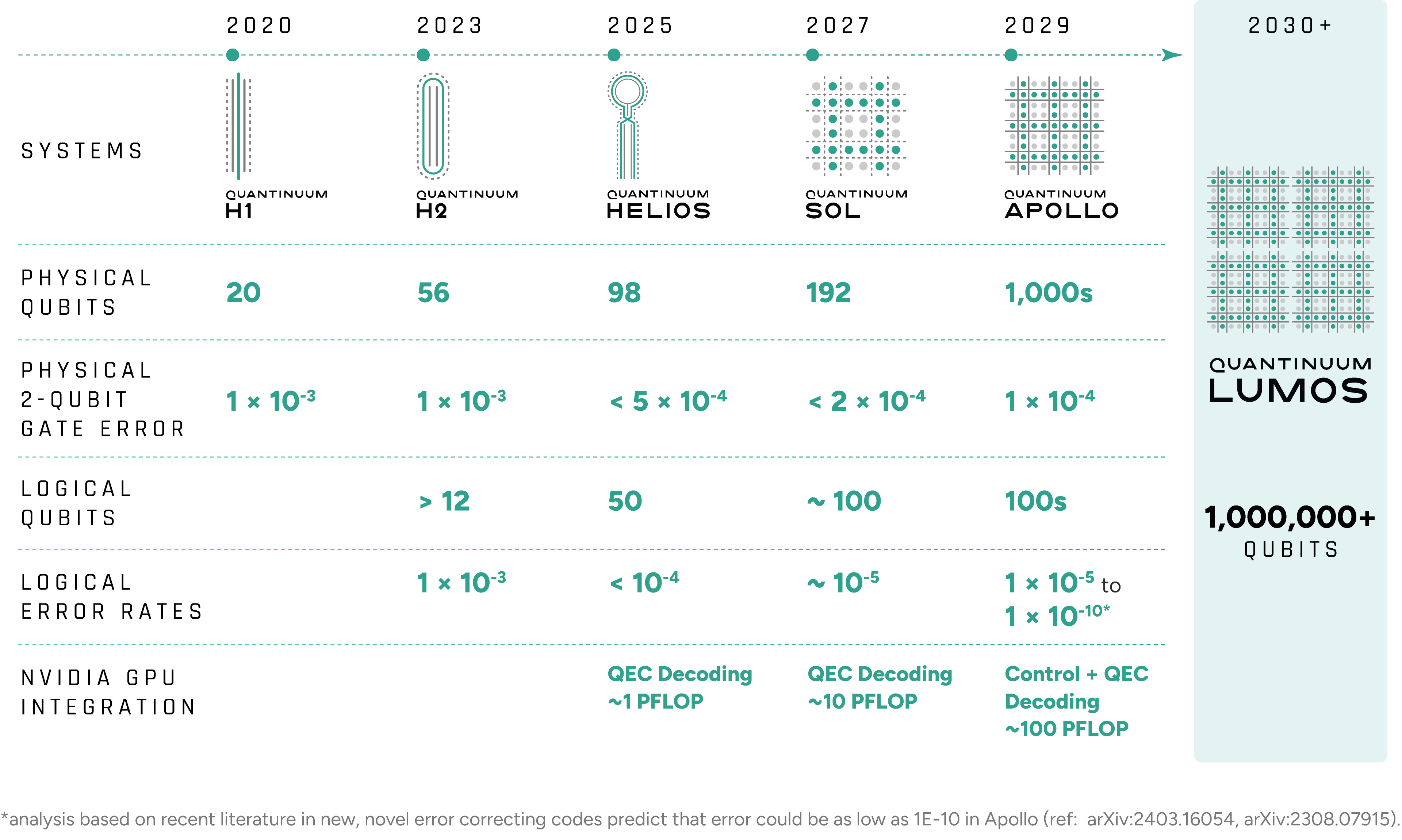While it sounds like a gadget from Star Trek, teleportation is real – and it is happening at Quantinuum. In a new paper published in Science, our researchers moved a quantum state from one place to another without physically moving it through space - and they accomplished this feat with fault-tolerance and excellent fidelity. This is an important milestone for the whole quantum computing community and the latest example of Quantinuum achieving critical milestones years ahead of expectations.
While it seems exotic, teleportation is a critical piece of technology needed for full scale fault-tolerant quantum computing, and it is used widely in algorithm and architecture design. In addition to being essential on its own, teleportation has historically been used to demonstrate a high level of system maturity. The protocol requires multiple qubits, high-fidelity state-preparation, single-qubit operations, entangling operations, mid-circuit measurement, and conditional operations, making it an excellent system-level benchmark.
Our team was motivated to do this work by the US Government Intelligence Advance Research Projects Activity (IARPA), who set a challenge to perform high fidelity teleportation with the goal of advancing the state of science in universal fault-tolerant quantum computing. IARPA further specified that the entanglement and teleportation protocols must also maintain fault-tolerance, a key property that keeps errors local and correctable.
These ambitious goals required developing highly complex systems, protocols, and other infrastructure to enable exquisite control and operation of quantum-mechanical hardware. We are proud to have accomplished these goals ahead of schedule, demonstrating the flexibility, performance, and power of Quantinuum’s Quantum Charge Coupled Device (QCCD) architecture.
Quantinuum’s demonstration marks the first time that an arbitrary quantum state has been teleported at the logical level (using a quantum error correcting code). This means that instead of teleporting the quantum state of a single physical qubit we have teleported the quantum information encoded in an entangled set of physical qubits, known as a logical qubit. In other words, the collective state of a bunch of qubits is teleported from one set of physical qubits to another set of physical qubits. This is, in a sense, a lot closer to what you see in Star Trek – they teleport the state of a big collection of atoms at once. Except for the small detail of coming up with a pile of matter with which to reconstruct a human body...
This is also the first demonstration of a fully fault-tolerant version of the state teleportation circuit using real-time quantum error correction (QEC), decoding mid-circuit measurement of syndromes and implementing corrections during the protocol. It is critical for computers to be able to catch and correct any errors that happen along the way, and this is not something other groups have managed to do in any robust sense. In addition, our team achieved the result with high fidelity (97.5%±0.2%), providing a powerful demonstration of the quality of our H2 quantum processor, Powered by Honeywell.
Our team also tried several variations of logical teleportation circuits, using both transversal gates and lattice surgery protocols, thanks to the flexibility of our QCCD architecture. This marks the first demonstration of lattice surgery performed on a QEC code.
Lattice surgery is a strategy for implementing logical gates that requires only 2D nearest-neighbor interactions, making it especially useful for architectures whose qubit locations are fixed, such as superconducting architectures. QCCD and other technologies that do not have fixed qubit positioning might employ this method, another method, or some mixture. We are fortunate that our QCCD architecture allows us to explore the use of different logical gating options so that we can optimize our choices for experimental realities.
While the teleportation demonstration is the big result, sometimes it is the behind-the-scenes technology advancements that make the big differences. The experiments in this paper were designed at the logical level using an internally developed logical-level programming language dubbed Simple Logical Representation (SLR). This is yet another marker of our system’s maturity – we are no longer programming at the physical level but have instead moved up one “layer of abstraction”. Someday, all quantum algorithms will need to be run on the logical level with rounds of quantum error correction. This is a markedly different state than most present experiments, which are run on the physical level without quantum error correction. It is also worth noting that these results were generated using the software stack available to any user of Quantinuum’s H-Series quantum computers, and these experiments were run alongside customer jobs – underlining that these results are commercial performance, not hero data on a bespoke system.
Ironically, a key element in this work is our ability to move our qubits through space the “normal” way - this capacity gives us all-to-all connectivity, which was essential for some of the QEC protocols used in the complex task of fault-tolerant logical teleportation. We recently demonstrated solutions to the sorting problem and wiring problem in a new 2D grid trap, which will be essential as we scale up our devices.








